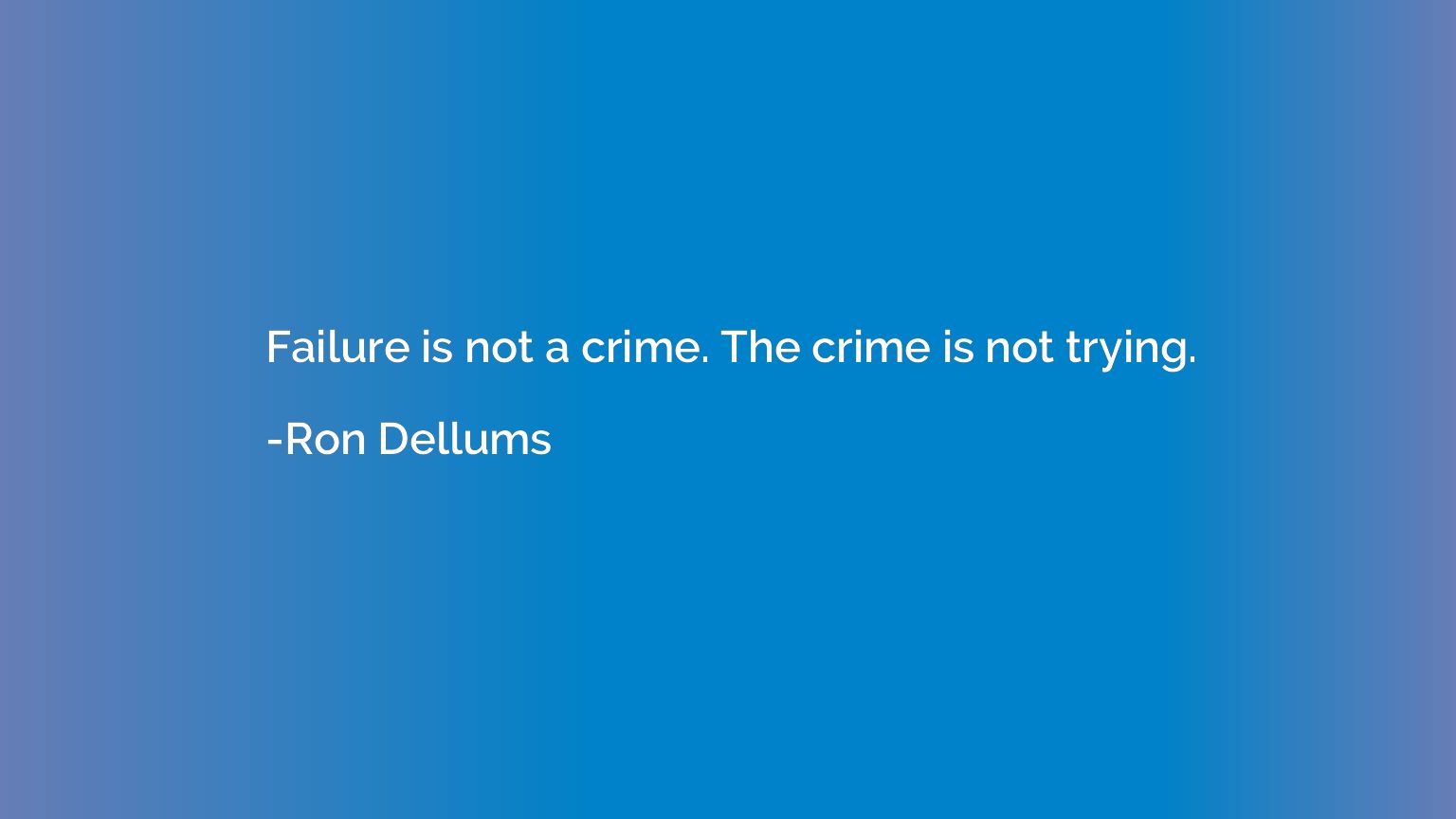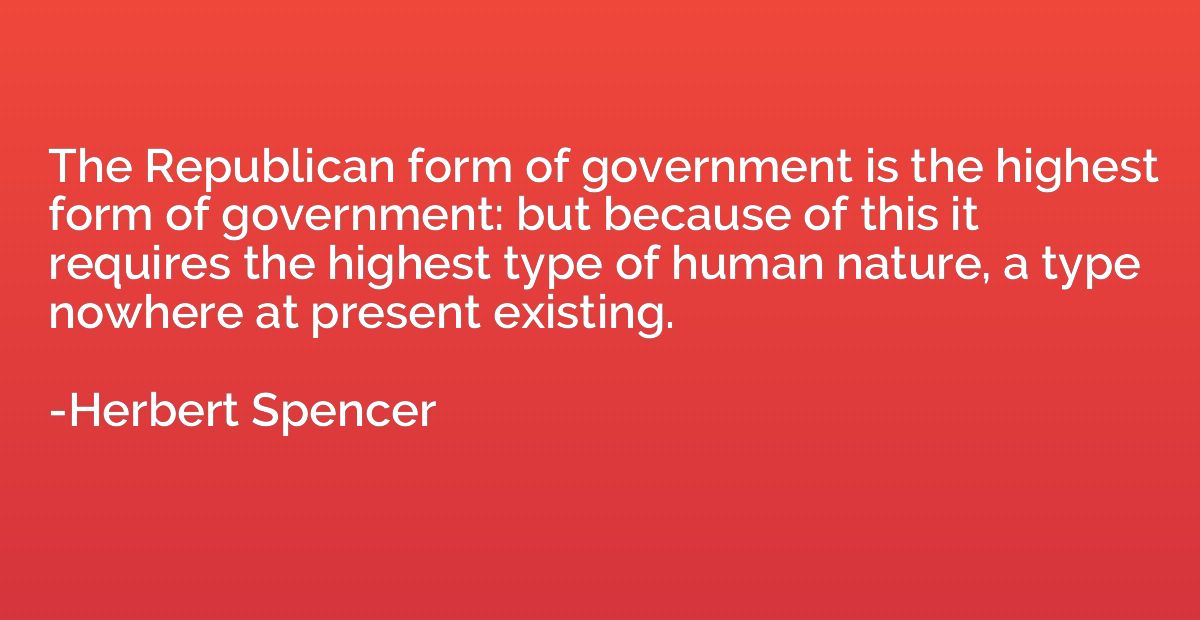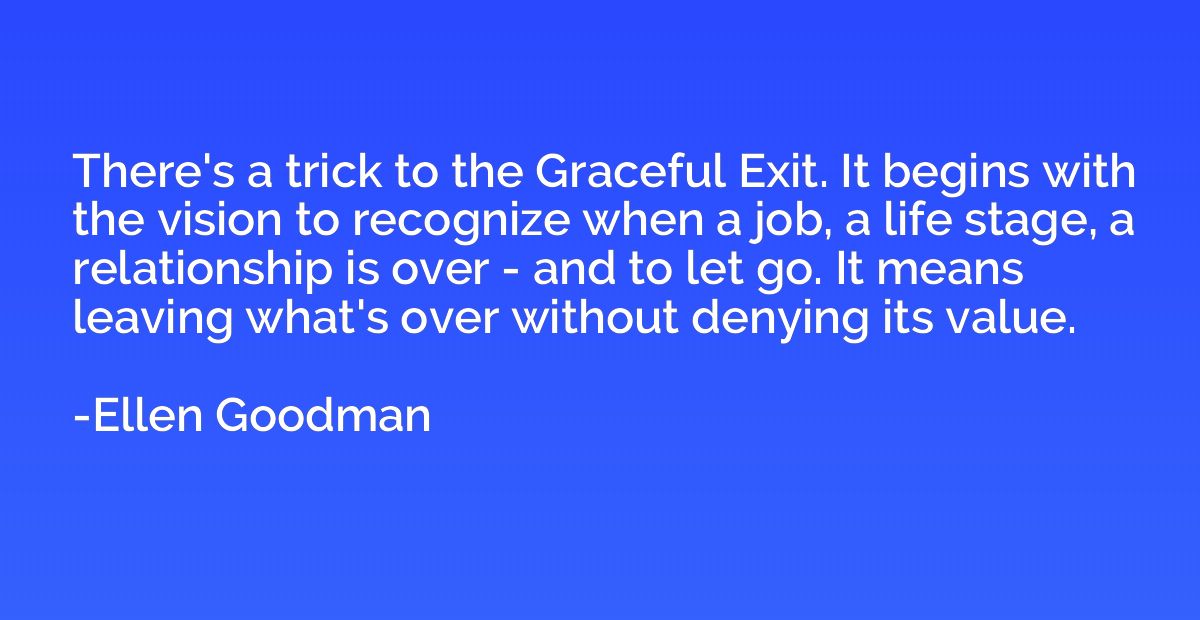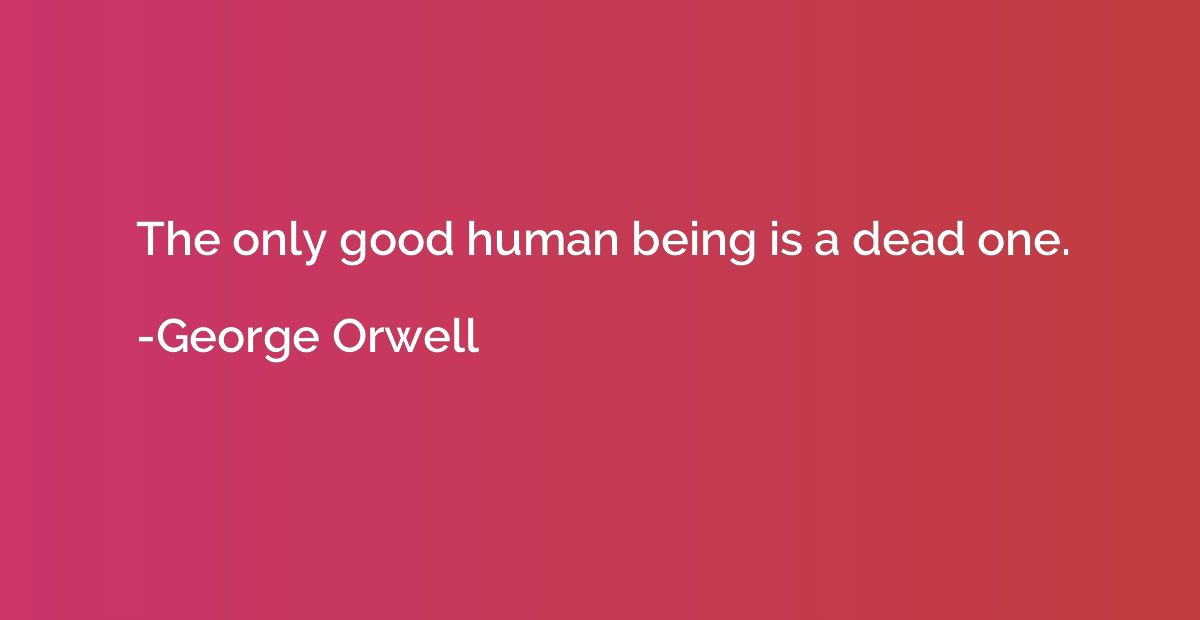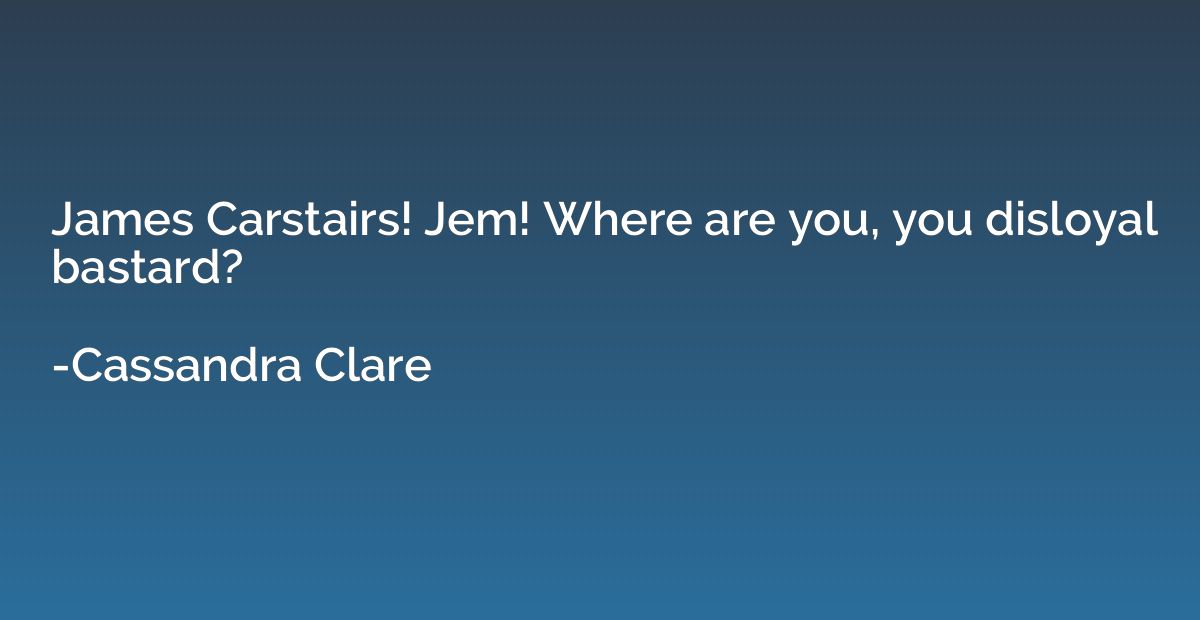Quote by Carl Gustav Jung, The Undiscover
The source of numerous psychic disturbances and difficulties occasioned by man's progressive alienation from his instinctual foundation, i.e., by his uprootedness and identification with his conscious knowledge of himself, by his concern with consciousness at the expense of the unconscious. The result is that modern man can know himself only in so far as he can become conscious of himself--his consciousness therefor orients itself chiefly by observing and investigating the world around him, and it is to its peculiarities that he must adapt his psychic and technical resources. This task is so exacting, and its fulfillment so advantageous, that he forgets himself in the process, losing sight of his instinctual nature and putting his own conception of himself in place of his real being. In this way he slips imperceptibly into a purely conceptual world where the products of his conscious activity progressively replace reality. Separation from his instinctual nature inevitably plunges civilized man into the conflict between conscious and unconscious, spirit and nature, knowledge and faith, a split that becomes pathological the moment his consciousness is no longer able to neglect or suppress his instinctual side.
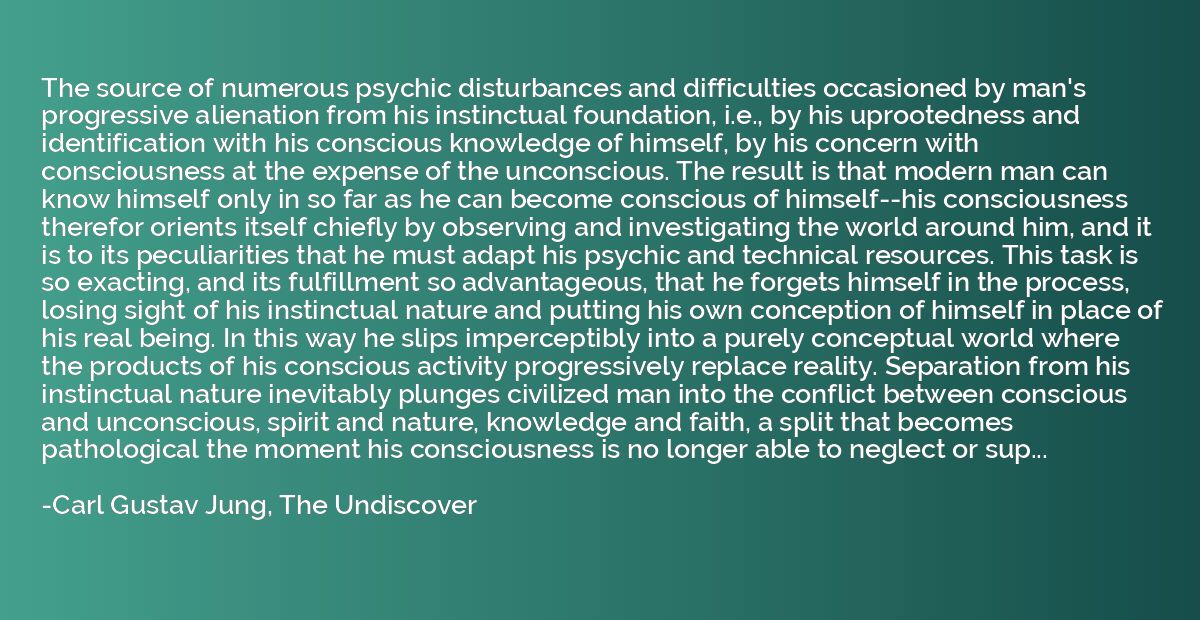
Summary
This quote refers to the problems that arise from modern humans becoming disconnected from their fundamental instincts. As we increasingly prioritize consciousness and rationality, we distance ourselves from our unconscious nature. Consequently, we mainly focus on observing and understanding the external world, adapting our resources accordingly. This emphasis on external pursuits leads us to forget our instinctual selves, replacing our true essence with a self-conception built on conscious activity. This gradual separation from our instinctual nature presents a conflict between our conscious and unconscious aspects, leading to psychological difficulties once we can no longer ignore our instinctual side.



